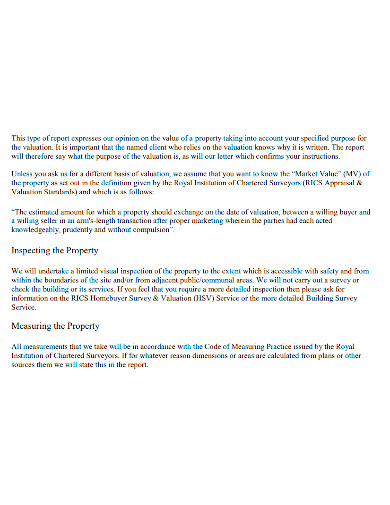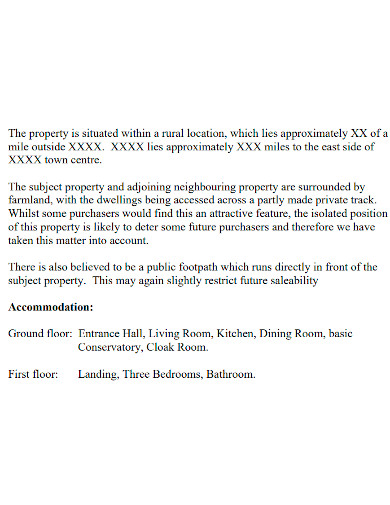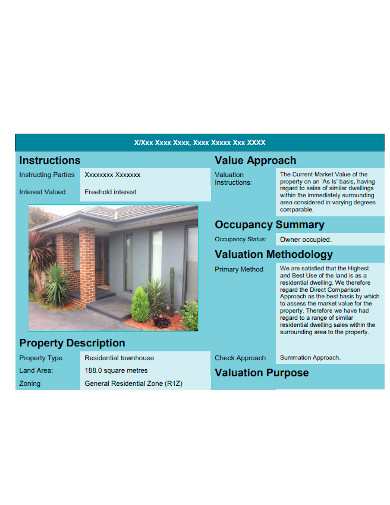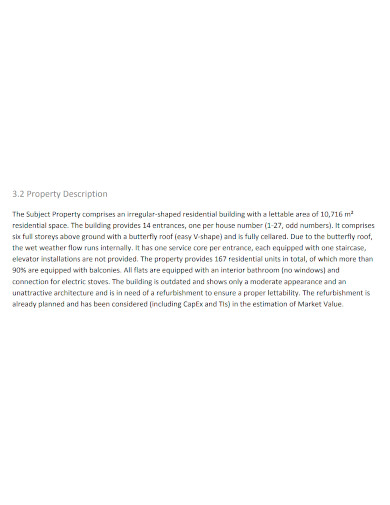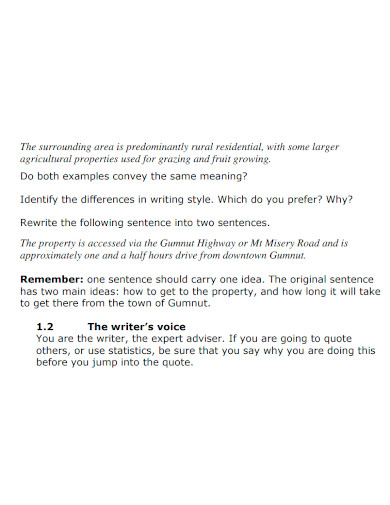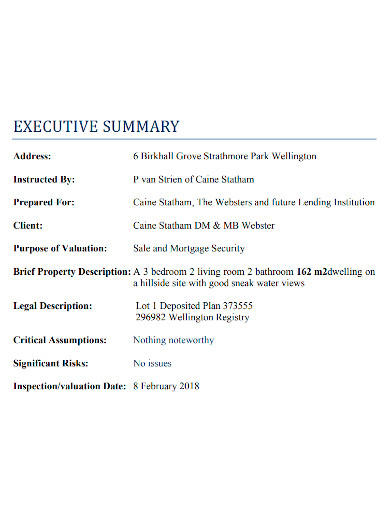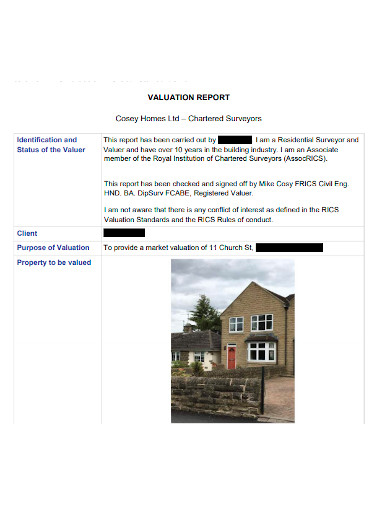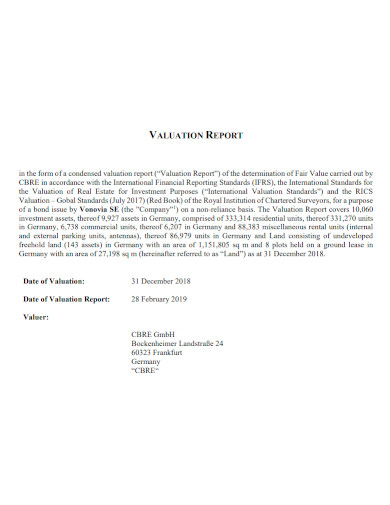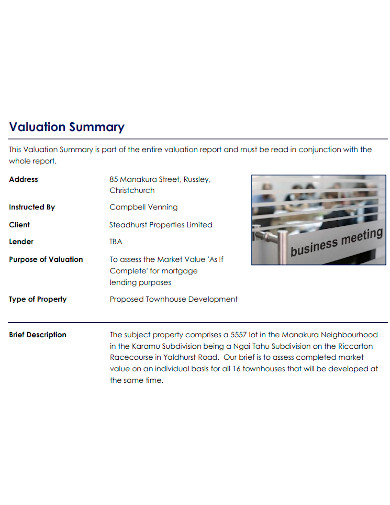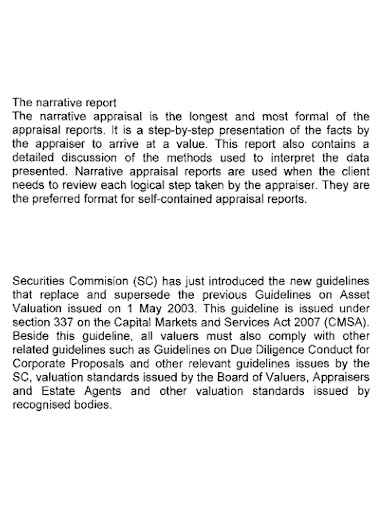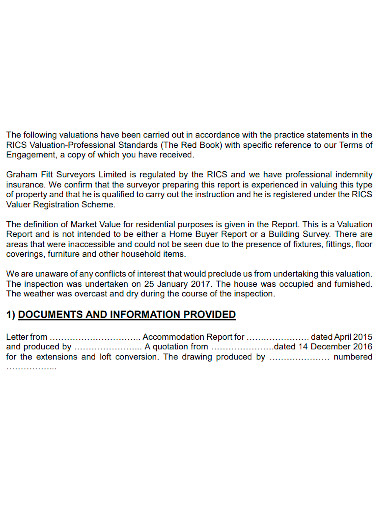When it comes to determining the worth of their company, most business owners have a specific number in mind that they want to adhere to as closely as possible. Many people believe that the value of a company should be equivalent to a multiple of its earnings or annual sales, but this is not the case at all. An accurate and acceptable company valuation, on the other hand, requires not only precise and appropriate calculations, but also the ability to defend that value in the event that it is contested by providing a clear and succinct explanation to support the findings reached. In contrast to this technique, which has a poor track record of accuracy and is unlikely to remain valid if the company is sold or becomes embroiled in a legal battle.
A valuation report, also known as a valuation, is a professional assessment of a property’s market worth that is conducted by a qualified valuer and used in real estate transactions to determine the value of the property. The general condition of the home (as viewed during a visit), as well as the home’s recent and relevant sales history, as well as other applicable market information, are all taken into consideration in the report. Take a look at our sample residential valuation reports, which we have supplied for you lower down on this page, before you begin creating your own. We hope you find them useful. You can use these samples as guides or even as templates to assist you through the full writing process when you have become comfortable with the document and its design and functioning.
10+ Residential Valuation Report Samples
1. Residential Valuation Report Sample
2. Formal Residential Valuation Report
3. Residential Valuation Report Format
4. Residential Property Valuation Report
5. General Residential Valuation Report
6. Printable Residential Valuation Report
7. Professional Residential Valuation Report
8. Editble Residential Valuation Report
9. Basic Residential Valuation Report
10. Standard Residential Valuation Report
11. Residential Property Valuation Report Sample
What Is a Residential Valuation Report?
In accordance with its definition, business valuation reports are attempts to accurately document and analyze the value of a firm or a group of assets while taking into consideration all essential market and industrial factors as well as economic factors. It is important to note that the purpose of the appraisal will decide the standard of value to be utilized, as well the valuation approach and assumptions that will be used in creating the assessment. This is due to the nature of the appraisal. When a corporation evaluates itself, it considers a number of factors, each of which has an impact on the final result. This will be defined by the reason for which the valuation is being undertaken, as well as the standard of value to be applied. As an example, suppose you are involved in a dissolution issue. Some states employ fair market value standards, whereas others use fair value standards, which are a legal criterion that is not based on market conditions at the time of the dispute.
How To Write a Residential Valuation Report
It is possible to do business valuation research in order to provide the owner of a company with a variety of data and numbers about the company’s genuine worth or value, such as market competitiveness, asset prices, and income values, among other things. A number of factors are included in the research, including market rivalry, asset prices, and income values, among others. This type of information should be available to any and all business owners who request it. At the very least, it is advised that a company appraisal be completed at least once per year in order to provide an indicator of the organization’s success. The following is a list of the most frequently found components of a well-written business valuation report, organized by frequency of occurrence:
- Assignment Identification
The report’s intended use, such as as a gift or estate planning document, or as a buy-sell agreement, financial statement, or litigation support report, among other things, should be clearly stated. In order to determine the standard of value to be utilized, the transaction’s purpose must be determined. Among other things, the transaction’s purpose will determine if the fair market value, fair value, strategic value, or liquidation value standard will be applied. The value criteria, in its simplest form, should be articulated in straightforward terms. - Business Description
This is an area where the valuation specialist should be able to properly communicate their understanding of the business. It is necessary to include information on the nature of the company’s operations, as well as its strengths and weaknesses; opportunities and threats; and any other important information in this area. This section should also include information on the company’s financial position. If the expert does not have a thorough understanding of the organization, the likelihood of making mistakes or omissions grows significantly. This report’s credibility could be jeopardized if one or both of these possibilities come to fruition. - Industry and Economic Trends
The stock value of a firm is influenced by external factors such as future cash flow and risk perceptions, which are in turn influenced by the value of the company’s shares. During this section of the paper, it is vital that the expert’s understanding of the environment in which the business is currently working be supported by relevant evidence. - Financial Analysis
It is possible to gain useful insight into future cash flow prospects by looking back at past performance. In the past, it has had an impact on the value of a firm based on how well (or poorly) it has performed – or how well (or poorly) it has done in comparison to other companies in the same industry. It is usually necessary to make revisions to a company’s financial statements in order to account for discretionary or nonrecurring items, as well as unique accounting practices, that are not reflected in the company’s financial statements in order to arrive at “normalized” cash flows. A forecast of future operations, or at the very least a discussion of the company’s goals and expectations for the future, is required in order to make an accurate assessment of the company’s financial future. - Valuation Methods
This section should provide a thorough account of the procedures that were implemented at the subject company, as well as the factors that led to their implementation. Because different ways or combinations of methods may be utilized in the same scenario on a regular basis, the value of this part cannot be overstated. This makes this section incredibly significant. In this part, the appraiser should provide extensive explanations of the computations that were performed in order to reach his or her conclusions. - Discounts and Other Considerations
Additionally to the regular discounts, it is possible that additional discounts such as voting, significant person, and obstruction discounts will be applied in addition to them. This component of the value report should include a discussion on whether discounts are warranted and, if so, why they are suitable in certain circumstances. It should include actual data to support the discount rates that have been chosen, rather than just hypothetical data, to ensure that the rates are accurate. Also included will be values derived from nontraditional sources of valuation evidence, in addition to traditional sources of valuation evidence such as previous transactions and offers, loan applications, previous appraisal reports, and rule of thumb. These values will be reconciled against the values derived according to the appraiser’s methodology.
FAQs
How long does it take to get valuation?
After a property value has been performed and authorized, it is customary for a lender to make a mortgage offer within one week after receiving the appraisal.
Who gives a valuation report?
When a lender hires a mortgage valuation evaluation to estimate the worth of a property at a specific point in time as part of the mortgage application process, the borrower is responsible for the costs associated with the assessment. Prospective purchasers should be aware that any information they acquire from lenders is provided purely as a gesture of goodwill, and that they do not have any legal rights to any of the information contained within the report.
What makes a good valuation report?
If you want to be particular, this should include information about the nature of the company’s operations, such as its strengths and weaknesses as well as opportunities and threats, along with financial information. A forecast of future operations, or at the very least a discussion of the company’s goals and expectations for the future, is required in order to make an accurate assessment of the company’s financial future.
Having an accomplishment report is vital for both the company and the employees since it keeps both parties informed about what is really going on in the office. Detailed information on each employee’s contributions and productivity over the course of the week, including overtime, is delivered by the system in a complete report. If you want to create an electronic achievement report that is nearly faultless, follow the rules in the templates and suggestions provided above.
Related Posts
FREE 12+ Sample Home Inspection Reports in MS Word Apple ...
FREE 11+ Sample Appraisal Order Forms in MS Word PDF
FREE 11+ Assignment of Insurance Policy Samples in PDF MS Word
FREE 10+ Vehicle Report Samples in MS Word Pages | Google ...
FREE 10+ Property Tax Samples in PDF MS Word
FREE 9+ Property Inventory Templates in PDF
FREE 9+ Sample Report Forms in PDF
FREE 8+ Sample Lease Extension Forms in PDF
FREE 5+ Sample Landlord Inventory Templates in PDF MS Word
FREE 15+ Site Investigation Report Samples
FREE 12+ Investment Analysis Templates
FREE 11+ External Audit Report Samples & Templates
FREE 10+ Facilities Management Report Samples
FREE 9+ Sample Property Damage Release Forms
FREE 9+ Business Report Samples

